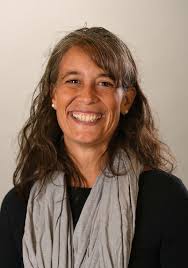 Today’s guest blog is Dr. Terri Greene Henning from St. Ambrose. She is writing about the podcast conversation with Bishop Robert Lynch, the retired archbishop of St. Petersburg, about the US Bishop’s 2005 statement, Renewing Our Commitment as part of the Catholic School Matters podcast Church documents series.
Today’s guest blog is Dr. Terri Greene Henning from St. Ambrose. She is writing about the podcast conversation with Bishop Robert Lynch, the retired archbishop of St. Petersburg, about the US Bishop’s 2005 statement, Renewing Our Commitment as part of the Catholic School Matters podcast Church documents series.
For those of us who attended Catholic schools and later served Catholic schools as teachers and/or school leaders, we know—in our hearts, minds, and souls—the value of Catholic education. We realize the way our years in Catholic schools were marked by a profound sense of social justice and commitment to Gospel values, namely, to love our neighbor. “What is the value or purpose of Catholic education?” is not a question I ever needed to ask myself, for I felt its answer every day—both as a student in Catholic schools and, later, as a teacher in one. Yet, how do we articulate the answer to others? To the greater community? As Dr. Timothy Uhl asks midway through his conversation with retired Bishop Robert Lynch in the most recent episode of Catholic School Matters, “What are the right words?”
The right words, perhaps, are found in the USCCB document “Renewing our Commitment to Catholic Elementary and Secondary Schools in the Third Millennium” (2005), which serves as the focal point for Dr. Uhl’s conversation with Bishop Lynch. In it, the bishops declared:
Catholic schools provide young people with sound Church teaching through a broad-based curriculum, where faith and culture are intertwined in all areas of a school’s life. By equipping our young people with a sound education, rooted in the Gospel message, the Person of Jesus Christ, and rich in the cherished traditions and liturgical practices of our faith, we ensure that they have the foundation to live morally and uprightly in our complex modern world. (¶5)
Of that definition, Bishop Lynch said, I wouldn’t change a word.
The conversation between Dr. Uhl and Bishop Lynch offers not only an insider’s view of the behind-the-scenes work of creating documents that set forth vision and, in some cases, policy but also a reflection on one of the more recent Church documents related to Catholic education. The points made in this 2005 statement were not new at the time of its writing—namely, the purpose and mission of Catholic education, the challenges facing Catholic schools, and the bishops’ commitment to schools—nor are they issues of the past. However, the notion of Catholic schools being “available, accessible, and affordable to all Catholic parents and their children, including those who are poor and middle class” (¶1) is as important and relevant as ever.
For all the challenges facing Catholic schools, including, as Bishop Lynch notes, declining numbers of Catholic school students and increased options and alternatives in education, Bishop Lynch’s and Dr. Uhl’s conversation offers hope and a sense of clarity and purpose for all those searching for the “right words” to share with the greater community. I found one particular observation of Bishop Lynch’s especially powerful; having spent these last few months in residence at the University of Notre Dame and interacting with many of the college students, he reflected on the number of young people who experienced their faith primarily through their Catholic school rather than through their Catholic parish. “How the Church engages them,” he said, “is a school-based reality, not so much a parish-based reality.” Bishop Lynch continued, “I would make a case for Catholic schools being almost essential to keep at least the spark, if not the flame, of faith alive in the Church in the coming decades.”
Toward the end of the conversation came, for me, perhaps the most powerful reminder of the great purpose and value of Catholic education. Catholic schools are places of encounter. For many, as Dr. Uhl so rightly acknowledged, the Catholic school may be the only encounter young people have with the Catholic Church in their lifetimes. And, as he said, “what a great encounter that will be.” However, encounters of faith in our Catholic schools are not for Catholic students alone. Jesus ministered to all, and so must we—in our communities and in our schools. Still, as Dr. Uhl pointed out, there are those who question the value of Catholic schools serving young people who may not be Catholic. In response, Bishop Lynch offered a refreshing and inspiring perspective, reminding listeners:
The Gospel reality reflected in the life and ministry of Jesus is we go out in search of those who need assistance and who need care and love, and we provide it. So someone who points the finger and says, “that school is primarily for non-Catholics and therefore should not be called a Catholic school” doesn’t understand the reality of Christ’s challenge for us to love our neighbor.
To that, a hundred thousand “Amens” from this Catholic educator!
The work of educating young people in our Catholic schools is not without its challenges, and the 2005 bishops’ statement, while aspirational and forward-thinking, has not yet been fully realized. Yet, there is great hope, great promise, and great faith to the future—just listen to Dr. Uhl and Bishop Lynch’s conversation for proof of that.
Terri Greene Henning, Ed.D., is a graduate of K-12 Catholic schools and a veteran high school English teacher in both public and Catholic schools. She earned her doctorate in Catholic Educational Leadership from the University of San Francisco in 2015 and currently serves as the Coordinator of Clinical Practice in the Education Department at Saint Anselm College in Manchester, New Hampshire.